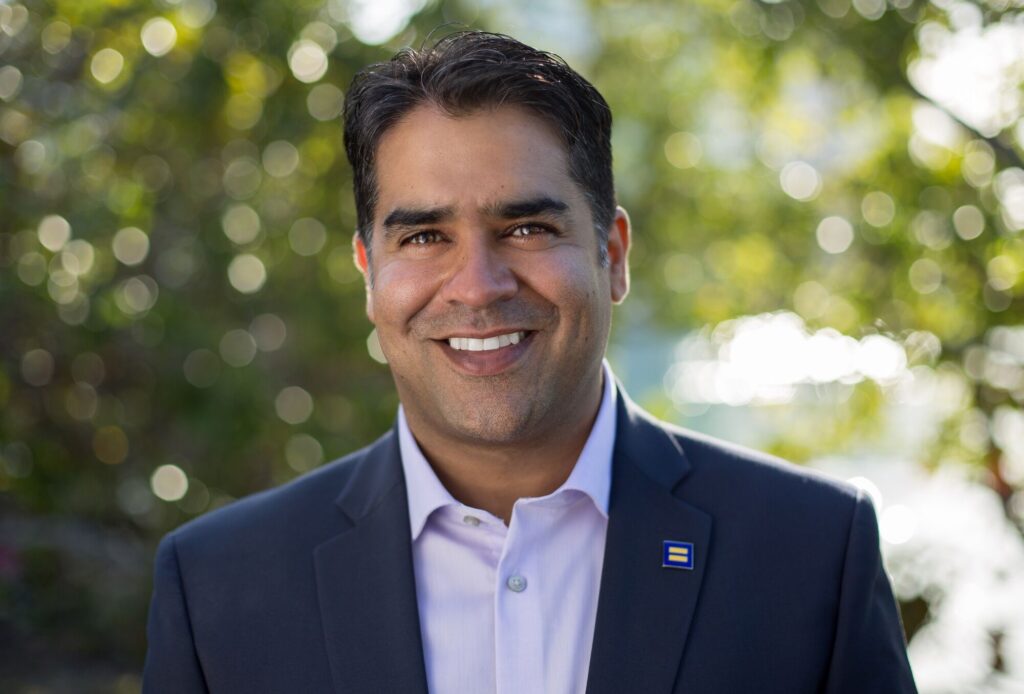Colorado LGBTQ agenda led by health care, transgender rights
When Daniel Ramos joined the staff of the state’s largest gay advocacy group five years ago to help curb bullying, his effort was secondary to legalizing civil unions and marriages for same-sex couples.
As victory after victory has piled up on each of those issues for One Colorado, the Sterling native has grown up alongside his movement. He just turned 30 and he’s the new executive director of the highest-profile, best financed statewide organization for lesbian, gay, bisexual, transgender and queer Coloradans.
“One of the big things is how fast public opinion has changed,” Ramos said over doughnuts and coffee in a conference room at the organization’s Denver office, just off bustling East Colfax Avenue in a grittier part of downtown.
In 2011, Colorado became the 13th state to pass a comprehensive anti-bullying law, a measure sponsored and supported by Republicans and Democrats. One Colorado has taken the lead in developing a curriculum to train educators across the state. The organization also has worked with school districts to update anti-bullying policies and launched the Colorado Gay Straight Alliance Network with 220 chapters in schools across the state.
“I think we can all agree on this ideal that no young person should be bullied because of their race, their religion, their sexual orientation or their gender identity and that all students should have an equal opportunity to participate in school,” Ramos said.
In 2013, Colorado passed civil unions for same-sex couples, and in 2015 the U.S. Supreme Court legalized gay marriage.
Gay rights advocates supported Obamacare because it made sure services for LGBTQ people, especially those who are transgender, were insured.
The Colorado LGBTQ agenda ahead, Ramos said, starts there: health care and transgender rights.
He is hopeful for cooperation.
“For most conservative folks, talking about transgender issues has actually been easier than talking about marriage, oddly enough,” he said.
Transgender issues are mostly libertarian – that the government shouldn’t meddle in people’s lives. Making it uniquely difficult to obtain health care or cumbersome to change the identity on their birth certificate does just that, he said.
Fair, legal health care
As President-elect Donald Trump and the Republican Congress are expected to dismantle the Affordable Care Act, health care gains for LGBTQ Americans will draw a keen focus from advocates.
The ACA removed exclusions for transgender health care, including mental health, hormones or surgery. One Colorado will continue to train people on how to make sure they’re being treated fairly and legally when insurance companies deny services,
At the state level they will again try to pass legislation to make it easier for a transgender person to change the gender on his or her birth certificate, and to ban gay conversion therapy for minors. State Senate Republicans killed both bills last session, and still hold a one-seat majority after last month’s elections.
One Colorado also will be working on a bill about drug-policy transparency to require any drug that costs more than $50,000 would require the pharmaceutical company to justify how it arrived at that price. HIV and hepatitis C drugs, which disproportionately affects the LGBTQ community, would be among those drugs.
The advocacy group also might work on legislation requiring more disclosure from Immigration and Customs Enforcement agents communicating with people who are detained on suspicion of immigration violations.
“I think it demonstrates the diversity of LGBTQ people and the issues they care about,” Ramos said of the organization’s broad agenda for 2017. “We’ve seen some huge wins for our people on health care, so it’s important that we protect those wins and make sure people have affordable access to health care.
“LGBTQ people are also immigrants, so work with our coalition partners, We work with our schools and we work within the community to make things better for all our communities.
Changing minds
Anti-LGBTQ laws are getting hard to pass almost everywhere, Ramos pointed out.
Out of 12 states that considered religious exemptions bills last year, only Indiana and North Carolina passed them.
“We know Republicans, too, don’t want to be talking about people using their religion to deny services or benefits to LGBTQ citizens,” Ramos said, which he sees as more proof of a changing mindset.
“We also know there are transgender Republicans,” he said. “We also know there are LGB Republicans, so continuing to talk about those issues and bring the stories we tell and the families who are impacted will eventually get us there.”











